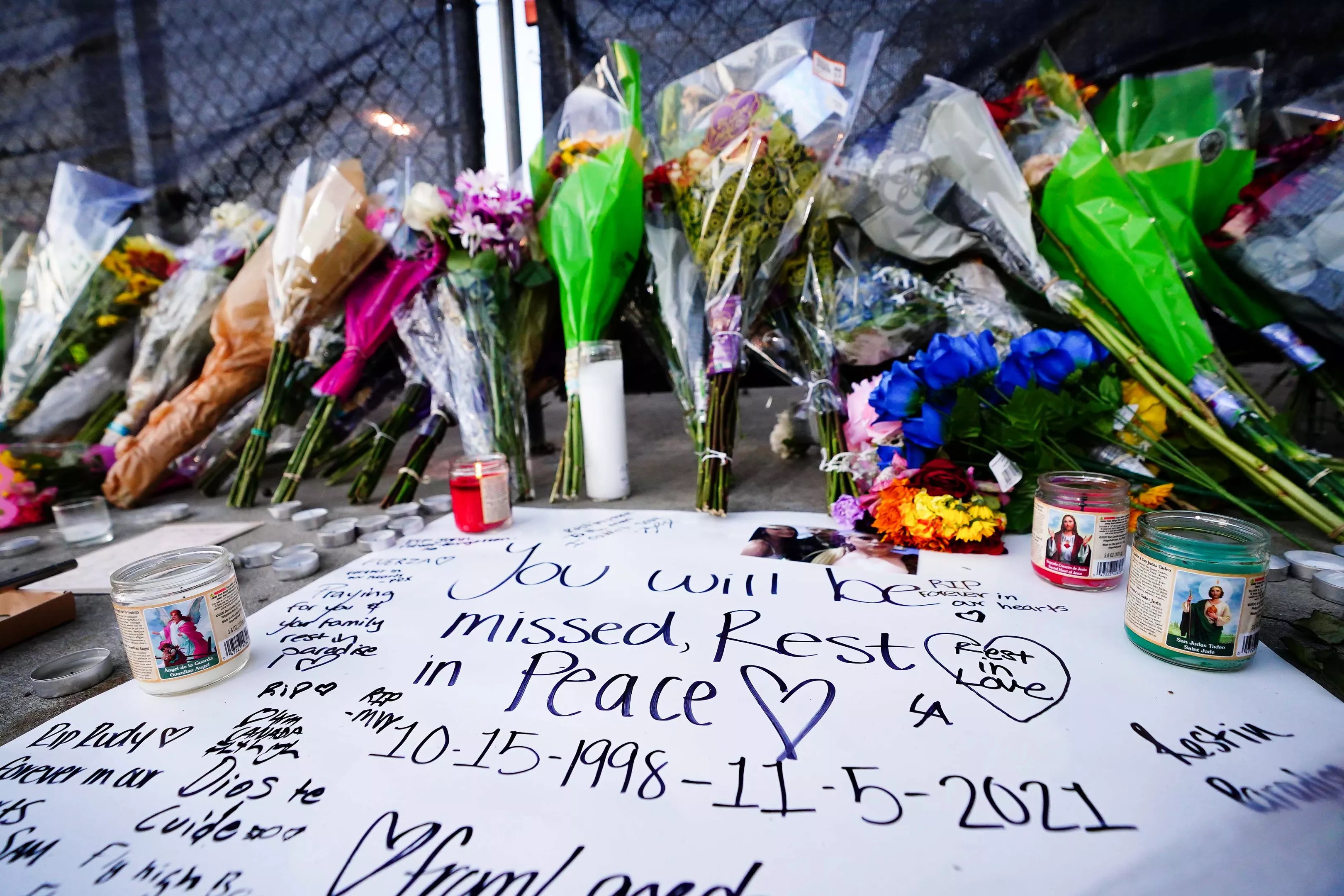
Alex Bierens de Haan/Getty

Audio By Carbonatix
The fiasco that unfolded at Travis Scott’s Astroworld festival in Houston Friday night, which left eight attendees dead and hundreds injured after a crowd surge, brought forth an overdue reckoning of “rager” culture.
Rager culture, in case it isn’t obvious, is the glorification of chaos and cacophony, the romanticization of transgression and moral subversion in artistic expression, especially during a performance. For classic examples, think Iggy Pop mutilating himself on stage or Electric Eels getting into fights while operating chainsaws and lawn mowers as musical instruments in a live setting.
The horrifying events that unfolded in Houston have perhaps justifiably aroused criticism that Scott’s particular brand as a “rager” artist led his audience to a culture of danger and neglect that, if avoided, could have potentially spared the lives of those lost. On the other hand, it can argued that ragers themselves are not inherently bad and that the rapper hasn’t lived up to his duty to cultivate that image responsibly.
Wherever you stand on the matter, it’s well understood that Scott’s brand as the incumbent ambassador of rager culture has not made for good post-tragedy optics.
The Associated Press seemed cognizant of this fact in a Nov. 7 report in which it noted in the story’s lead, “Travis Scott’s high-energy performances are known for being chaotic and fun-filled shows with concertgoers encouraged to take part in a raucous nature involving mosh pits, crowd surfing and stage diving. On Friday night, something went wrong.”
One of Scott’s most popular bars of late was from his 2018 single “Stargazing,” in which he spits, “It ain’t a mosh pit if ain’t no injuries / I got ’em stagediving out of nosebleeds.”
Fans have, in fact, dived from nosebleed seats at Scott’s shows. As Rolling Stone noted, a 27-year-old fan (who is suing Scott after news broke of the deaths at Astroworld) was left paralyzed after he dropped from the balcony in New York’s Terminal 5 on the rapper’s insistence, as he said on the mic, “They gonna catch you. Don’t be scared.”
That same year, Scott also told fans to rush the stage despite security’s objections during a show in Arkansas. A similar thing happened during his 2015 set at Lollapalooza.
Scott’s alleged negligence during these incidents notwithstanding, it speaks to the allure of rager culture. Maybe Scott’s 2015 Lollapalooza set is one of many dark spots on the rapper’s legacy, but if no security guards had been harmed, it would have made for an awesome experience. At the first Lollapalooza in 1991, Gibby Haynes of the Butthole Surfers unloaded shotgun blanks from the stage, and it’s remembered as a cool anecdote rather than a tragedy that ruined the once-wholesome name of the Butthole Surfers.
The appeal of the rager culture Astroworld sought to tap into shouldn’t be misunderstood. Subversiveness of norms is a universal language, and the only reason Scott’s particular brand of mayhem is even dominating the national conversation is because innocent people died from circumstances that, from a glance, seem to have been exacerbated by it.
The deaths at Astroworld will perhaps make participants of rager culture more vigilant in ensuring the safety of those around them. Before Friday, nobody who raged had ever been so hideously confronted with the possibility of life or a limb being taken. Since then, videos have circulated widely online of performers reacting more empathetically to similar situations as those that unfolded at Astroworld, including those from A$AP Rocky, Slipknot, Post Malone, Linkin Park, Adele and Billie Eilish.
“If someone falls, help them up” is a recurring theme expressed by the artists in these videos. So is “Give this person space.”
In Scott’s defense, he did ask security to help someone in the crowd, but as one video of the concert clearly shows, he kept the set going. The seemingly cavalier attitude he has displayed in past incidents has certainly give support to the popular notion that Scott exhibits a negligent – and is at the very least oblivious – care for his surroundings while performing live and even encourages chaos even when it has an unchecked potential to harm people.
The eight deaths and scores of injuries that happened Friday night are a sobering reminder of crowd’s potential for influence, but the one silver lining is this: People in the crowd helped others and pleaded en masse for Scott to stop the show the second chaos ensued. Many people on video were seen caring for their fellow humans and coordinating with emergency responders to get complete strangers to safety.
After all, if the alluring danger of a rager actually translates to tangible harm, the show must not, under any circumstances, go on.